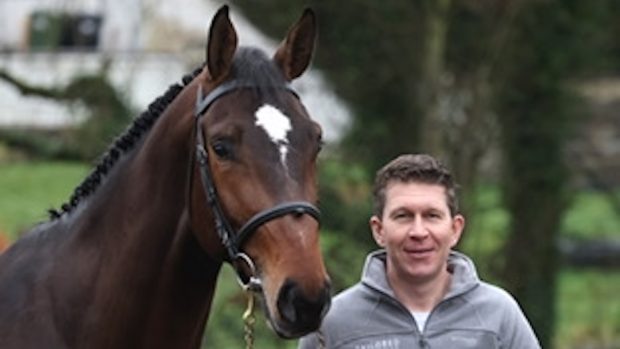A record number of clone ponies look set to feature in Adolfo Cambiaso’s string when the world number one polo player takes to the field for the Argentine Open later this month (20 Nov-12 Dec).
The ten-goaler’s business partner, Alan Meeker of Crestview Genetics, has revealed that clones of the famous Cuartetera (pictured) and other top high-goal ponies Small Person, Raptor and Lapa are likely to be played by Cambiaso in what is the most prestigious tournament in the world, at Palermo, Buenos Aires.
Cambiaso rode a clone of Cuartetera in the Hurlingham Open, which he won with his La Dolfina team earlier this month. He also played the original Cuartetera alongside one of her clones in the 2014 Argentine Open. His pony list for this year’s tournament, however, is likely to feature the highest number of clones yet.
Since teaming up with Meeker’s Crestview Genetics in 2008, Cambiaso has copied his ponies multiple times and is thought to have in excess of 100 clones now on the ground.
| Popular articles |
However, Cambiaso is not the only top player who has gone down this sometimes controversial route.
Califa, the 2009 US and Argentine Open team pony played by Mariano Aguerre, became the first polo pony in the world to be cloned in 2010 (news, 11 February 2010).
The procedure — which involves taking cells from a donor animal and implanting them in an unfertilised egg with the DNA removed, which is then placed in a host mare — costs around £100,000.
While cloning has not taken off among British players, the procedure itself being illegal in the UK, in Argentina it is becoming widespread practice in polo.
“There are very few players not doing it,” said Mr Meeker. “It’s easier to count those who are not cloning than those who are. Probably 60-70% are cloning for breeding purposes only, whereas we are doing it for both breeding and performance.”
For Mr Meeker, cloning shouldn’t just be an option for the elite.
“I see it making lots more quality DNA available to more players,” he added. “We’re trying to make it available for everyone and I think we’ll see the cost drop. I also sell the offspring of clones, and I haven’t yet met anyone I wouldn’t sell a horse to.”
Ref: 19/11/2015





